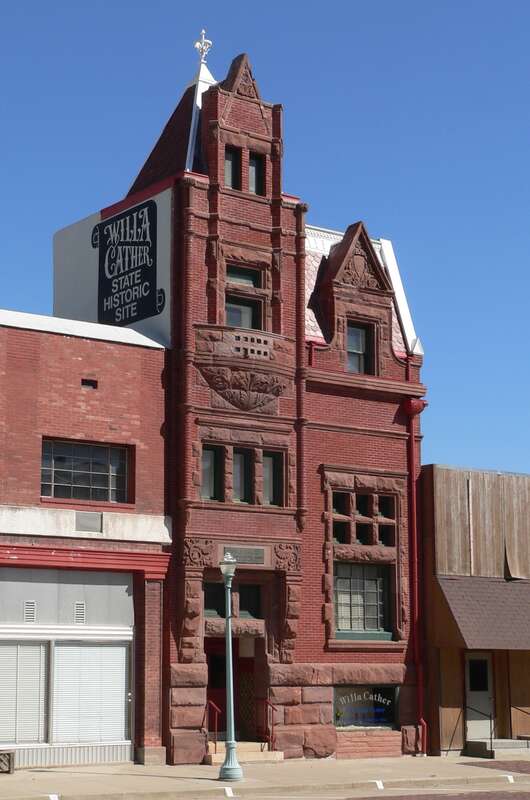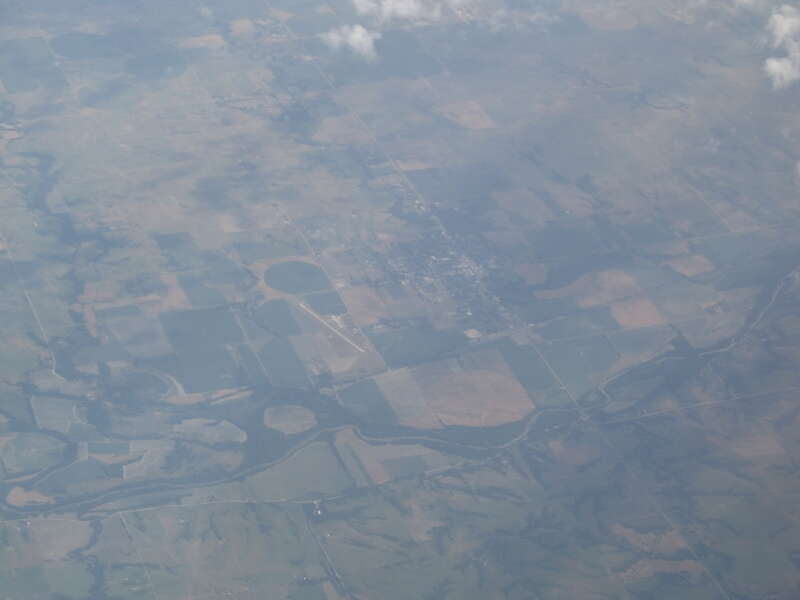Nestled in the heart of America, Kansas has long been a muse for writers seeking to capture its rustic rural charm and embody the spirit of its hardworking, humble, and hospitable people. From prairie tales that evoke a sense of tranquility to heartland homilies that speak to ambition and progressiveness, these literary giants have left an indelible mark on the Sunflower State's cultural landscape.
One cannot discuss Kansas literature without mentioning Willa Cather (1873-1947), whose novel O Pioneers! (1913) paints a vivid portrait of early settlers on the Great Plains. Cather's lyrical prose transports readers to Red Cloud, where Alexandra Bergson battles against adversity with her unwavering determination. As you wander through Red Cloud today, be sure to visit The Willa Cather Foundation (413 N Webster St., Red Cloud), which preserves her childhood home and offers insight into her life and works.
Moving forward in time but still capturing the essence of Kansas is Truman Capote (1924-1984). Though best known for his nonfiction masterpiece In Cold Blood (1966), Capote spent his formative years in Monroeville, Alabama. However, it was during his travels across America that he encountered Holcomba small town in western Kansaswhere he uncovered a shocking crime that would shape his career. To pay homage to Capote's investigative journalism prowess, stop by The Clutter Family Home Museum (239 E Hickock Dr., Garden City) where you can delve into the details surrounding this infamous murder case.
Kansas also boasts poets who have beautifully captured its tranquil landscapes and profound emotions. Langston Hughes (1902-1967), born in Joplin but raised partly in Lawrence before becoming one of the leading figures of the Harlem Renaissance, penned The Negro Speaks of Rivers (1921) during a train ride through Kansas. His powerful words pay tribute to the state's rivers and their significance in African American history. While in Lawrence, visit The Langston Hughes Center (1112 Massachusetts St.), which celebrates his life and legacy.
Another poet who found inspiration in Kansas is Gwendolyn Brooks (1917-2000), the first African American writer to win a Pulitzer Prize. Her poem kitchenette building (1945) explores the struggles faced by residents living in cramped urban spaces, drawing parallels between Chicago and Topeka's historic neighborhoods such as Tennessee Town. Take a stroll through this vibrant community located near downtown Topeka, where you can experience firsthand its rich cultural heritage.
As we delve deeper into contemporary literature, it would be remiss not to mention Thomas Fox Averill's novel Rode, set against the backdrop of Dodge Citya town synonymous with cowboys and Wild West legends. Averill masterfully captures both the historical essence and modern complexities that define this iconic city on America's frontier. Celebrate Dodge City's cowboy culture at Boot Hill Museum (500 W Wyatt Earp Blvd.) or catch a rodeo at United Wireless Arena (4100 Comanche St.).
These writers have skillfully woven together tales that embody Kansas' authentic traditions while exploring its unique character from various angleseach contributing their own artistic nuance along the way. Whether you find yourself immersed in Cather's prairie landscapes or captivated by Capote's journalistic prowess, these literary giants offer an invitation to explore Kansas beyond its physical borders.
Websites:
- The Willa Cather Foundation: www.willacather.org
- The Clutter Family Home Museum: www.cluttermuseum.com
- The Langston Hughes Center: www.langstonhughescenter.ku.edu
- Boot Hill Museum: www.boothill.org
Twitter handles:
1873-1947, KS
United States
KS
United States
413 N Webster St.
Red Cloud, KS
United States
1924-1984, KS
United States
KS
United States
239 E Hickock Dr.
Garden City, KS
United States
1902-1967, KS
United States
KS
United States
1112 Massachusetts St.
KS
United States
1917-2000, KS
United States
KS
United States
500 W Wyatt Earp Blvd.
KS
United States
4100 Comanche St.
KS
United States


![Winter Sunset With Venus (192532955).jpeg
500px provided description: Winter sunset evening glow. Blue sky with Venus and possible meteor [#sunset ,#winter ,#twilight ,#evening ,#kansas ,#contrail ,#neighborhood ,#meteor ,#venus ,#bare trees ,#cloudless sky ,#horizion]](/sites/default/files/2023-06/Winter_Sunset_With_Venus_%2528192532955%2529.jpeg)


![Winter Sunset With Venus (192532955).jpeg
500px provided description: Winter sunset evening glow. Blue sky with Venus and possible meteor [#sunset ,#winter ,#twilight ,#evening ,#kansas ,#contrail ,#neighborhood ,#meteor ,#venus ,#bare trees ,#cloudless sky ,#horizion]](/sites/default/files/2023-06/Winter_Sunset_With_Venus_%2528192532955%2529.jpeg)




![Winter Sunset With Venus (192532955).jpeg
500px provided description: Winter sunset evening glow. Blue sky with Venus and possible meteor [#sunset ,#winter ,#twilight ,#evening ,#kansas ,#contrail ,#neighborhood ,#meteor ,#venus ,#bare trees ,#cloudless sky ,#horizion]](/sites/default/files/2023-06/Winter_Sunset_With_Venus_%2528192532955%2529.jpeg)


![Winter Sunset With Venus (192532955).jpeg
500px provided description: Winter sunset evening glow. Blue sky with Venus and possible meteor [#sunset ,#winter ,#twilight ,#evening ,#kansas ,#contrail ,#neighborhood ,#meteor ,#venus ,#bare trees ,#cloudless sky ,#horizion]](/sites/default/files/2023-06/Winter_Sunset_With_Venus_%2528192532955%2529.jpeg)
